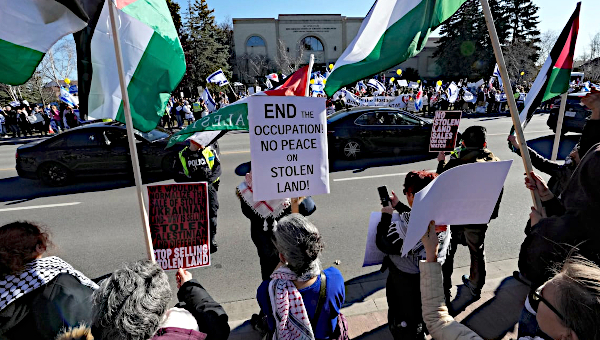 Translation of a statement by Student Committee in Defense of Political Prisoners.[See original in Persian here]
Translation of a statement by Student Committee in Defense of Political Prisoners.[See original in Persian here][photo: Gohardasht prison in Karaj]
Gohardasht Prison in Karaj an Ongoing Human Catastrophe
Student Committee in Defense of Political Prisoners / June 11, 2010
Gohardasht Prison in Karaj an Ongoing Human Catastrophe
Student Committee in Defense of Political Prisoners / June 11, 2010
Raja'i-shahr prison in Karaj (Gohar-dasht) is these days used to house a large number of political prisoners, which is unprecedented compared to recent years. In this prison, many [political] prisoners are struggling with a variety of physical and psychological illnesses and ailments. Some have even lost their lives. Nowadays, Raja'i-shahr prison in Karaj has come to be known as the place of death and exile. Two of the political prisoners held there, communicating with the Student Committee in Defense of Political Prisoners, have provided a report of the conditions in that prison that exposes an ongoing human catastrophe.
Based on reports received by the Committee in Defense of Political Prisoners from Raja'i-shahr prioners, the general conditions of this prison are extremely deplorable. Ali Haj-Kazem, the prison warden, and Ali Mohamadi, his deputy, in coordination with the judiciary and security system, play important roles in the intensification of pressures on the political prisoners. Maximizing the unhygienic conditions of the wards, stopping the entry [into prison] of any medications needed by the prisoners, physical assaults and torture of political prisoners, water stoppages, housing political prisoners with the sick as well as violent criminals, are all among efforts by prison authorities to intensify the inhumane conditions of political prisoners.
At the orders of the prison warden, an annex (hosseinieh) has been built in one of the wards, and several prisoners including Ahmad Zeid-Abadi have been transferred there. This annex which is only 110 [square] meters [about 10 yards by 10 yards] lacks any kind of primitive facilities for living in a prison, and its only merit is being at a distance from other prisoners in the Raja'i-shahr prison, who are mainly violent criminals or murderers. Seven people are housed in this annex, and they live on a rug.
In most of the wards in Raja'i-shahr prison, due to extreme overcrowding of prisoners, large numbers sleep in the hall, which has become known as the 'sleeping floor'. For example, Ward 4 houses more than 800 prisoners, whereas it only has a capacity for between 200 and 240 prisoners. Ward 4 has no bathrooms and has only 8 toilets, so the prisoners have to stand in long lines so that after a long time they may use a toilet. And then, in this ward water is shut off from 7:30 AM till 11 PM.
Ali Saremi, Mohamad-Ali Mansoori, Saleh Kohandani, Sa'eed Masoori, [...] Misagh Yazdan-nejad, Ali Mo'ezi, Afshin Paymani, Karim Aziz, Mehdi Fetrat and Hassan Tafah are among the political prisoners who are kept in Ward 4, and are struggling with extremely difficult conditions.
Another way of dealing with political prisoners is to prevent the availability of any medication or medical treatment, which, accompanied by the unhygienic conditions of the prison, have created very painful and oppressive conditions for the prisoners. Mansoor Osanloo, Khaled Hardani, Ali Saremi and Mansoor Radpoor are among political security prisoners, whose medications have been stopped from getting into the prison.
Behrooz Javid Tehrani and several others are kept in Ward 1, with dangerous criminals so as to put pressure on them. Ward 1, which comprises three halls, is known to be one of the worst wards in the prison. Hall #2 of this ward is for solitary cells, known as the 'dog house', and is where prisoners undergo torture. Behrooz Javid Tehrani is in this ward and has been subjected to severe torture. In recent days, prison guards have assaulted the prisoners kept in Ward 1, and have beaten up and injured many of them. The prison authorities, in order to stop any leaks of the news of the beatings and assaults on the prisoners, prevented the transfer of the injured prisoners to the prison clinic.
Ward 5 is known as the addicts' ward, in which prisoners who are addicted to narcotics are kept, alongside prisoners with contagious diseases. This is a dangerous ward, in which new inmates can quickly catch or come down with various diseases. Mansoor Osanloo, the leader of the bus drivers' union of Vahed Company [in Tehran], who was transferred to this ward to put pressure on him, [subsequently] came down rapidly with a respiratory illness. This was done even though Osanlou already suffers from many illnesses, and his transfer to Ward 5 has added more to his list of ailments. However, under international pressure he has since been transferred to Ward 3, which is known as the 'workers ward'.
The unhygienic conditions, presence of drug addicts and those with contagious diseases such as AIDS, and as well all the tortures carried out in this prison have caused the political prisoners to have expressed grave concerns regarding the safety of their lives in this prison. They are in particular concerned about the health of Behrooz Javid Tehrani, whom the prison authorities are said to want to kill.
To prevent a human catastrophe in Raja'i-shahr prison in Karaj, information dissemination and Iranian people's protests, as well as international organizations' interventions are all necessary, and the Student Committee for Defense of Political Prisoners will expend effort in this endeavor.
Student Committee for Defense of Political Prisoners
komitedefa.blogspot.com







No comments:
Post a Comment